The Seven Most Anti-Inflammatory Foods to Rapidly Remove Inflammation
The Seven Most Anti-Inflammation Foods for All-Day Energy & Alkalinity
The foundation of all sickness, disease, ageing, pain and imbalance is a combination of:
- Acidity
- Oxidative Stress
- and Inflammation
The Standard American (Everywhere) Diet is absolutely packed full of pro-inflammatory, acidic and oxidative-stress causing foods – sugar, gluten, red meat, processed foods, dairy, wheat, GMOs, additives, preservatives and so on. You know the stuff. These foods are causing us to be stressed, acidic and inflamed…
And the antidote to this is, of course, you guessed it, foods that are:
- Alkaline
- Antioxidant-rich
- and Anti-Inflammatory!
If you are struggling with any of the common, obvious signs of inflammation such as an autoimmune condition, pain, arthritis, adrenal fatigue, digestive issues, thyroid issues OR health challenges not normally associated with inflammation such as chronic fatigue, weight gain, fatty liver and more – you HAVE to start adding these anti-inflammatory foods into your diet!
So let’s get into the seven most anti-inflammatory foods to focus on to help you make it real!
And remember, if you ever need motivation to make this happen: chronic inflammation will dramatically speed the aging process and the older you get the more inflammation you will have and the faster it will happen!
The Seven Most Powerful Anti-Inflammatory Foods
Quiz: can you notice anything that all of the anti-inflammation foods have in common…and something all of the pro-inflammatory foods have in common too?
1. Avocado
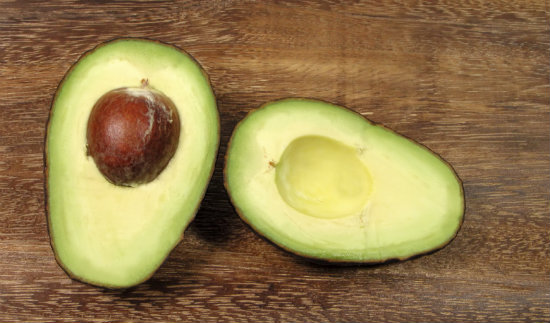
Avocados are possibly one of the very best anti-inflammation foods. I really recommend having avocado every day!
There are FIVE nutrients in avocados that makes them such an anti-inflammation powerhouse:
- Phytosterols: including beta-sitosterol, stigmasterol, and campesterol
- Carotenoid antioxidants: including lutein, neoxanthin, neochrome, chrysanthemaxanthin, beta-cryptoxanthin, zeaxanthin, violaxanthin, beta-carotene and alpha-carotene
- The non-carotenoid antioxidants: including the flavonoids epicatechin and epigallocatechin 3-0-gallate, vitamins C and E, and the minerals manganese, selenium, and zinc
- Omega-3 fatty acids: in the form of alpha-linolenic acid (approximately 160 milligrams per cup of sliced avocado)
- And Polyhydroxylated fatty alcohols (PSA)s
All five of these nutrients have been strongly linked to preventing inflammation, especially arthritis.
2. Ginger
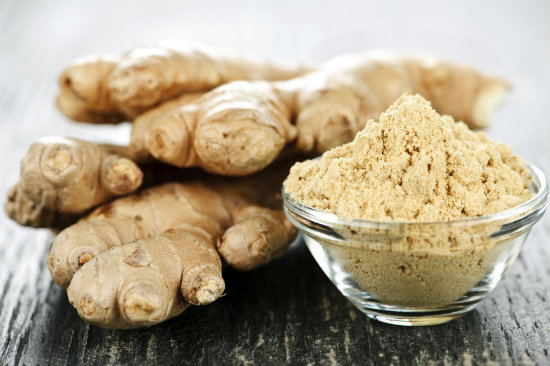
Ginger contains ultra-potent anti-inflammation compounds called gingerols (cool name), which are the substances that many researchers believe are responsible for the reduction in inflammation people experience when they start taking ginger supplements regularly.
Gingerols have been heavily researched and proven to be linked to the relief of pain from the inflammatory conditions, osteoarthritis or rheumatoid arthritis.
In two clinical studies involving patients who responded to conventional drugs and those who didn’t, physicians found that 75% of arthritis patients and 100% of patients with muscular discomfort experienced relief of pain and/or swelling.
Ginger is delicious, easily used in cooking, juices, and smoothies and I recommend you fall in love with it!
3. Turmeric
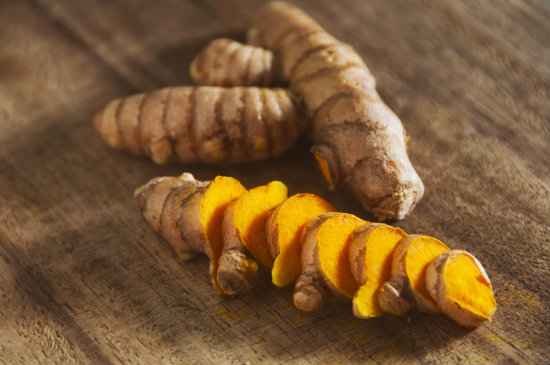
Research shows that turmeric has powerful anti-inflammatory, anti-tumor, and antioxidant properties.
Turmeric contains a pigment called curcumin, and this pigment not only gives turmeric its very yellow color, but is also the active ingredient behind many of its proven health benefits.
One recent study found that osteoarthritis patients who added 200 mg of curcumin a day to their treatment plan experienced reduced pain and increased mobility, whereas the control group, which received no curcumin, experienced no significant improvements.
Other research also found that a turmeric extract composed of curcuminoids (plant-based nutrients that contain powerful antioxidant properties) blocked inflammatory pathways, effectively preventing the launch of a protein that triggers swelling and pain.
Clinical studies have also found that curcumin also has very powerful antioxidant effects. Due to this, it is able to neutralize free radicals and dramatically reduce joint inflammation and pain.
Definitely worth including in your daily diet, but don’t get it on your clothes. I learned that lesson (on dozens of occasions) the hard way!
4. Garlic
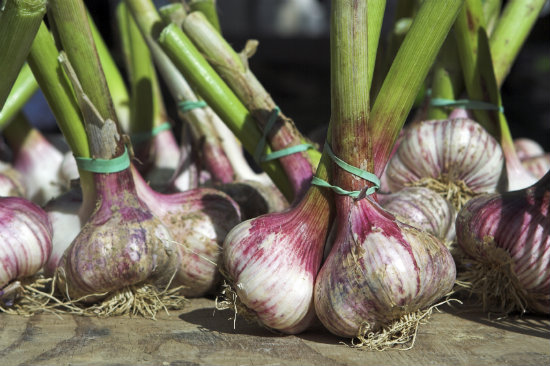
Delicious, smelly, and darn good for you.
Garlic has huge anti-inflammation properties that have been linked to cardiovascular health, preventing obesity (related to sulfur-containing compounds found in garlic) and in helping and preventing arthritis.
Two additional compounds in garlic (vinyldithin and thiacremonone) are found to inhibit the activity of inflammatory messenger molecules while also providing an anti-oxidative stress benefit.
The most researched compound in garlic, allicin, has been linked to many anti-inflammation benefits, and this food should definitely be eaten multiple times daily.
5. Beetroot
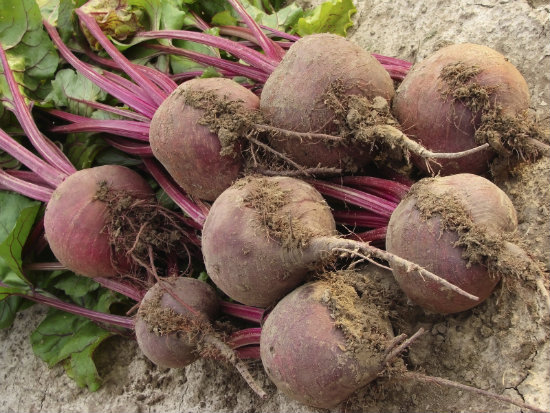
As with many other high-antioxidant foods, beetroot has been shown to have fantastic anti-inflammatory benefits.
The phytonutrients betanin, isobetanin, and vulgaxanthin that are found in beetroot have been the subject of huge amounts of research with regards to heart health (a symptom of chronic inflammation).
Alongside the anti-inflammatory benefits that betanin has, it is also proven to have anti-fungal properties and aid in detoxification.
6. Asparagus
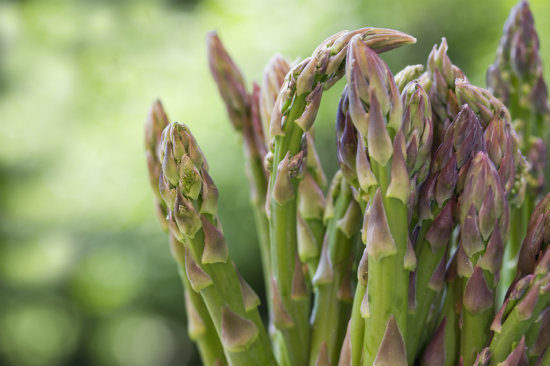
Asparagus is a super-anti-inflammation because of its unique combination of anti-inflammation nutrients including asparanin A, sarsasapogenin, protodioscin, diosgenin, quercetin, rutin, kaempferol, and isorhamnetin.
You don’t need to be able to pronounce those nor do you need to remember them – just know that asparagus has possibly more anti-inflammation compounds in it than any other food!
(Plus asparagus also contains antioxidant nutrients including vitamin C, beta-carotene, vitamin E, and the minerals zinc, manganese, and selenium.)
7. Omega 3
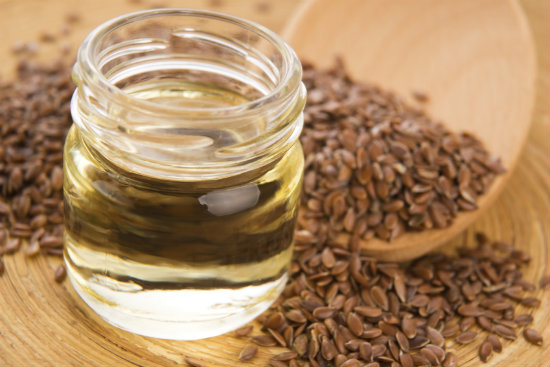
Omega 3 is crucially important to fight inflammation.
The primary omega-3 fatty acid in flaxseeds—alpha-linolenic acid, or ALA— is fantastic for the cardiovascular system in and of itself.
It also acts as a building block for other molecules that help prevent excessive inflammation and protects the blood vessels from inflammatory damage.
But the antioxidant and anti-inflammation benefits of flaxseed don’t stop with the cardiovascular system.
Studies have shown that omega 3 intakes can be linked to the prevention of the following inflammation-based conditions: high cholesterol, high blood pressure, heart disease, diabetes, rheumatoid arthritis, osteoporosis, depression, inflammatory bowel disease, asthma and more.
PLUS Honorable Mentions Must Also Go To Cucumber, Cinnamon, Celery, Quinoa, Cloves and Cauliflower which are all excellent at fighting inflammation too!
Anti-Inflammatory Recipes to Help You Get Started!
These four recipes will get you started, they’re easy, delicious, quick, and contain only simple, common ingredients (as all of my recipes do). They are hugely popular in the Anti-Inflammation Breakthrough program (which has 150+ more recipes just like these). Again, if you want advance notice when the 2020 opening of the Anti-Inflammation Breakthrough opens (and spaces are limited) click here and register.
These are four of the most popular recipes! Enjoy:
[+] The Anti-Inflammatory Smoothie
[+] The Soothing Gut-Healing Soup
[+] The Triple A Juice (delicious by the way)
[+] Refreshing, Warming Turmeric & Ginger Tea (Powerful)
Now go eat these foods! Try the recipes! When you follow an alkaline-based, anti-inflammation diet it TRULY gets results, and it’s a TON of fun, and so delicious.
Let’s do this,
Ross
Sources & References:
Ban JO, Oh JH, Kim TM et al. Anti-inflammation and arthritic effects of thiacremonone, a novel sulfurcompound isolated from garlic via inhibition of NF-kB. Arthritis Res Ther. 2009; 11(5): R145. Epub 2009 Sep 30. 2009. – Link to Article
Bahadori B, Uitz E, Thonhofer R, et al. Omega-3 Fatty acids infusions as adjuvant therapy in rheumatoid arthritis. JPEN J Parenter Enteral Nutr. 2010; 34(2):151-5. – Link to Article
Chedraui, P., & Perez-Lopez, F. R. (2013). Nutrition and health during mid-life: searching for solutions and meeting challenges for the aging population. Climacteric, 16(S1), 85-95. – Link to Article
Elbandy MA and Abdelfadeil MG. Stability of betalain pigments from red beetroot (Beta vulgaris). Poster Session Presentation. The First International Conference of Food Industries and Biotechnology & Associated Fair. Al-Baath University, North Sinai, Egypt. – Link to Article
Fredrickson, B. L., Grewen, K. M., Coffey, K. A., Algoe, S. B., Firestine, A. M., Arevalo, J. M. G., et al. (2013). A functional genomic perspective on human well-being. Proceedings of the National Academy of Sciences, 110(33), 13684-13689. – Link to Article
Ippoushi K, Azuma K, Ito H, Horie H, Higashio H. [6]-Gingerol inhibits nitric oxide synthesis in activated J774.1 mouse macrophages and prevents peroxynitrite-induced oxidation and nitration reactions. Life Sci. 2003 Nov 14;73(26):3427-37. – Link to Article
Iriti, M., Vitalini, S., Fico, G., & Faoro, F. (2010). Neuroprotective Herbs and Foods from Different Traditional Medicines and Diets. Molecules, 15(5), 3517-3555. – Link to Article
Lashinger, L. M., Ford, N. A., & Hursting, S. D. (2014). Interacting Inflammatory and Growth Factor Signals Underlie the Obesity-Cancer Link. The Journal of Nutrition, 144(2), 109-113. – Link to Article
Licinio, J., & Wong, M. L. (1999). The role of inflammatory mediators in the biology of major depression: central nervous system cytokines modulate the biological substrate of depressive symptoms, regulate stress-responsive systems, and contribute to neurotoxicity and neuroprotection. Mol Psychiatry, 4(4), 317-327. – Link to Article
Maroon JC, Bost JW. (2006) Omega-3 fatty acids (fish oil) as an anti-inflammation: an alternative to nonsteroidal anti-inflammation drugs for discogenic pain. Surg Neurol. 2006 Apr;65(4):326-31. – Link to Article




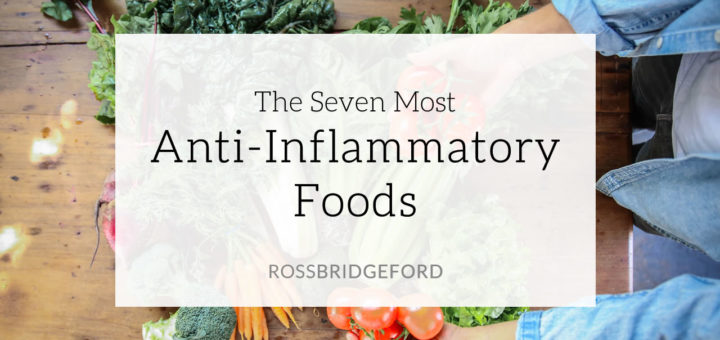
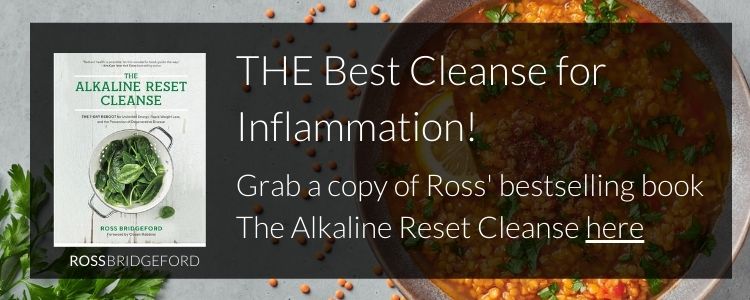
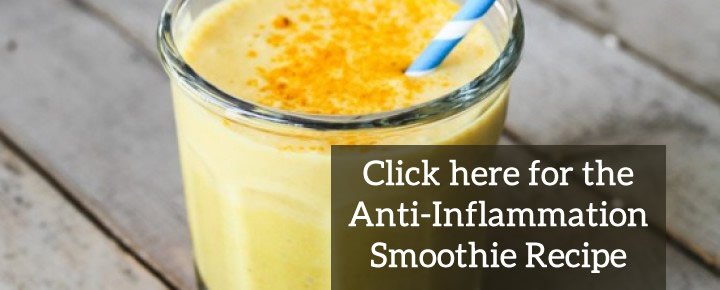

In what form should you have the beetroot – raw juiced or cooked?
Any of the above! There’s benefits to having it juiced – it concentrates the nitric oxide. But raw or cooked is fine too for the other anti-inflammatory and antioxidant benefits.
It’s 7:40 am and I’m just reading this article after breakfast (and juicing). Of the 7 most anti-inflammatory foods listed, proud to say I’ve already had 4 – avocado, ginger, turmeric & red beets. Yay me!!!!
What to do about gum disease?
Follow the steps in this guide: http://liveenergized.com/anti-inflammation-diet/anti-inflammation-diet/ and look into coconut oil pulling 🙂
Hi Ross,
In response to the above list of anti-inflammatory foods I would like to know the recommended daily dose. We have been consuming decent quantities of all of the foods on a daily basis, except asparagus, for some years now but still have health issues linked to inflammation (gout, arthritis, vascular problems….) Maybe we need to eat more….!
Best wishes
Thank you for your links to the scientific papers that back your claims… what you are teaching is REAL ….
Thanks Samantha
Trying the 7 day GI tract reset in woman’s world. Beet juice recipe makes me nausea. Why ? Thanks
Hey Linda
So awesome you found me through their article 🙂
Depending on where you’re coming from with your diet, there’s a possibility that the volume of nutrients in the juice is a little hard for your liver to process all at once right away. Just water it down a little, and if you feel nausea like this, just have a little snack – some crackers would do – and the nausea will disappear.
Ross
On the ARC Is it ok to have the ginger turmeric tea every morning instead of the bulletproof turmeric tea. I’m not too fond of that one.
Hi Barbara
Yep, but I would also say that this is definitely not the best place to be asking ARC Coaching questions 🙂
I don’t check these comments every day.
Ross